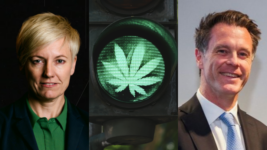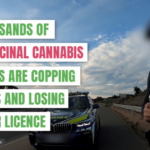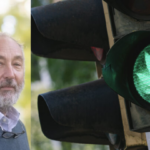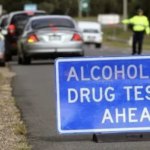Medicinal Cannabis Drug Driving Defence Introduce in NSW Parliament

New South Wales Greens MLC Cate Faehrmann has long been attempting to address the legal anomaly that sees prescribed users of medicinal cannabis at risk of losing their drivers licence whenever behind the wheel, including when unimpaired.
Yet, with the tabling of her new legislation, she’s confident the political climate has changed so dramatically in this respect since the last time she attempted the reform, that the bill’s more than likely to get over the line.
Introduced on 28 May 2025, the Road Transport Amendment (Medicinal Cannabis-Exemptions from Offences) Bill 2025 aims to provide prescribed cannabis medicine users, which has been a legal drug since October 2016, with a defence for testing positive for traces of the psychoactive component of cannabis, THC, in their system because unaffected users likely always have remnants present.
To be clear, unlike random breath testing for alcohol, which gauges levels of alcohol in a driver’s blood, and hence, ascertains whether a person’s concentration of alcohol is capable of impairing the ability to drive, roadside drug testing in New South Wales only looks for the presence of four drugs in a driver’s system, which means drivers can test positive to all these substances after they’ve worn off, and this is especially so for cannabis, as traces of it hang around for a long time.
Some of the changes that Faehrmann lists as having taken place since her 2021 cannabis driving defence bill was voted down include the 2024 NSW Drug Summit having recommended the defence be progressed and Victoria having just enacted its own, while she’s also specifically responded to a technical point raised about “onus of proof”, underscoring that it does lie with the defendant.
So, following the Daily Telegraph having earlier this month reported that the Minns government had promised Legalise Cannabis MLC Jeremy Buckingham that it would be progressing its own medicinal cannabis driving reform, Faehrmann has produced her bill, using the advice of past inquiries, to ensure NSW Labor keeps its pledge, as it’s been a bit flaky in this regard in the past.
Broken promises linger
“Currently, there’s nothing on the public record from the Minns government – no plan, no commitment and no timeline – that they will introduce legislation in this area this year,” said Faehrmann in respect of the suggested pledge that those governing the state have made regarding a medicinal cannabis drug driving defence.
“I’m not prepared to rely on vague assurances by a nongovernment MP around what the government intends to do, and when, in this area,” the NSW Greens drug law reform spokesperson told Sydney Criminal Lawyers.
In terms of not being able to trust the current NSW government to progress promised law changes specifically regarding drug law reform, Faehrmann has good reason.
Indeed, most of the alcohol and other drug (AOD) sector likely feels the same way, as NSW Labor ran in the last election on a platform that promised to progress drug law reform and then NSW premier Chris Minns got extremely cold feet.
In late August 2023, the Daily Telegraph quizzed Minns on whether he’d be progressing drug decriminalisation, which was soon to take effect in the Australian Capital Territory, however the premier told the publication that he had “no mandate” to progress such reform and he then delayed his party’s election promise to hold a NSW Drug Summit to some obscure time in the future.
So, the same Murdoch rag that was pressuring the premier into reneging on drug law reform two years back is now telling the public not to worry as a medicinal cannabis drug driving defence reform is in the bag.
“I was very clear in my speech to the bill that I’ve put it forward as a starting point, and as model legislation for the simple amendment needed to the Road Transport Act to make the law fair for medicinal cannabis patients,” Faehrmann added in terms of why she’s taken the initiative to table her new drug driving medicinal cannabis defence legislation.
Stark injustice left to fester
On tabling her new legislation, Faehrmann underscores that it mirrors her last 2021 bill, except she’s tweaked the issue with the onus of proof that had been identified by the parliamentary committee inquiry that scrutinised the legislation.
And at the time the previous iteration of the new bill was voted down, medicinal cannabis users had then been subjected to these drug driving laws hanging over their heads for five years, and with this new law on the horizon, cannabis medicine users have now almost spent a decade with the potential of having their licence revoked for the act of driving whilst not under the influence.
Drug driving outlaws being behind the wheel of a vehicle with any presence of four select drugs in a driver’s system, which includes amphetamines, MDMA, THC and cocaine. The 2007 enacted law, currently sits under section 111 of the Road Transport Act 2013 (NSW).
These days, a first-time offender is given a $682 on-the-spot fine and automatically loses their licence for a three month period, and while the corresponding penalties have changed, the act of punishing lawful cannabis medicine users has been playing out since October 2016.
Since its inception, the NSW drug driving regime has always been the target of ridicule, as even when it solely pertained to illicit substances, all such drugs linger in a person’s system for an imprecise period after intoxication, so people have always been charged and have lost their licences over test results that have never claimed to show a driver was impaired or driving high on drugs.
But since, a 2023 NSW Local Court ruling found drug driving is an absolute liability offence, and not a strict liability offence, as had been the case prior, the situation has become a lot more desperate in NSW, as drug driving is now the type of crime that neither involves proving intent and provides no defence, with this having been confirmed by the NSW Court of Criminal Appeal early last year.
To clarify, a strict liability offence is the type of crime that doesn’t require the prosecution prove a defendant intended to break the law or even knew they were, but the accused can argue the defence of honest and reasonable mistake of fact, whereas an absolute liability offence too does not require the need to prove intent, however, there is also no defence available whatsoever for such a crime.
Faehrmann’s legislation aims to insert new subsection 111(1A) into the Road Transport Act, which would provide a defence to a drug driving charge if the defendant can prove the only drug present in their system was THC, and that “was obtained and administered in accordance with the Poisons and Therapeutic Goods Act 1966”, along with the individual holding a valid driver’s licence.
Keeping them honest
One key reason why credence was being given to a hearsay announcement that NSW Labor would be forging a medicinal cannabis drug driving charge was that the recently published 2024 NSW Drug Summit report recommended the government enact “a medical defence for people using medically prescribed cannabis who are driving”.
The report further advised that the law should include “an option for police at the roadside or a court to assess the defence” and a set of guidelines should be developed by government agencies, with the law then being reviewed after 12 months. Faehrmann’s bill differs in regard to review period as it calls for an inquiry into the defence’s performance after 36 months of it being in operation.
Victoria recently became the first state to legislate a medicinal cannabis drug driving defence, and this came into effect on 1 March, which meant that it became the second jurisdiction to protect drivers who are prescribed medicinal cannabis. The first was Tasmania, which already had a medical defence relating to driving on its books when cannabis became a lawfully prescribed drug.
“I will be talking with MPs from all sides of politics in the coming months to ensure that when the law is finally changed in this area that it’s done in the right way,” Faehrmann further told SCL.
“Importantly, my bill is now ready to go if the government gets cold feet,” she further underscored. “Medicinal cannabis patients have already been waiting for far too long. Let’s just get it done.”







